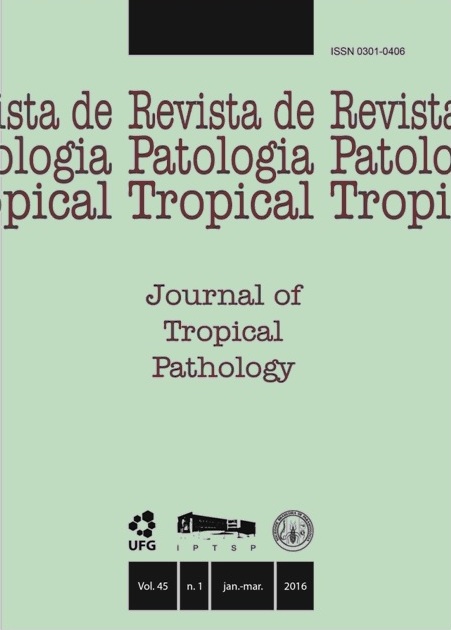MALARIA EVOLUTION IN THE STATE OF MARANHÃO: HISTORICAL SERIES FROM 2009 TO 2013
DOI:
https://doi.org/10.5216/rpt.v45i1.39977Keywords:
Brazilian Amazon, state of Maranhão, malaria, control.Abstract
This study was carried out in order to evaluate the evolution of malaria in the state of Maranhão from 2009 to 2013. Absolute numbers of cases and Annual Parasitic Incidence (API) in the 19 Regional Health Units (RHU) and in the 10 municipalities with the highest disease records within the 5 geographic regions of the State were evaluated from the records of the Endemic Diseases Department, the State Health Secretariat. Throughout the study period 16,847 cases were reported. In 2009 the Annual Parasitic Incidence was 0.86 cases/1,000 inhabitants, whereas in 2013 this indicator reached 0.08cases/1,000 inhabitants in the State, which corresponds to a 90.6% reduction. There was a moderate increase in the number of cases in the northern region in 2011 and in the central region in 2010 and 2011. In 2010 numbers increased in 7 regional health units; in 2011 in six, and in 2012 in two. In 2013 there was a higher number of cases recorded in relation to 2012 in the regional unit of Codó. Among the municipalities that registered the disease are Centro Novo do Maranhão, Cândido Mendes, Alcântara, Amapá do Maranhão, Presidente Sarney and Guimarães, which presented a medium risk indicator at different moments during the study. There was a reduction in the number of cases with a Parasitic Annual Incidence lower than 10 cases/1,000 inhabitants (low risk) in all areas studied in the year 2013.Downloads
Downloads
Published
How to Cite
Issue
Section
License
The manuscript submission must be accompanied by a letter signed by all authors stating the full name and email address, confirming that the material has not been published or is under consideration for publication elsewhere, and agreeing to transfer copyright in all media and formats for Journal of Tropical Pathology. The authors will not be paid for published articles. They are solely responsible for the content of those articles, even if the Editor holds the right to adjust them to the norms of the journal.
The reviewers will not be paid for the peer review process.

